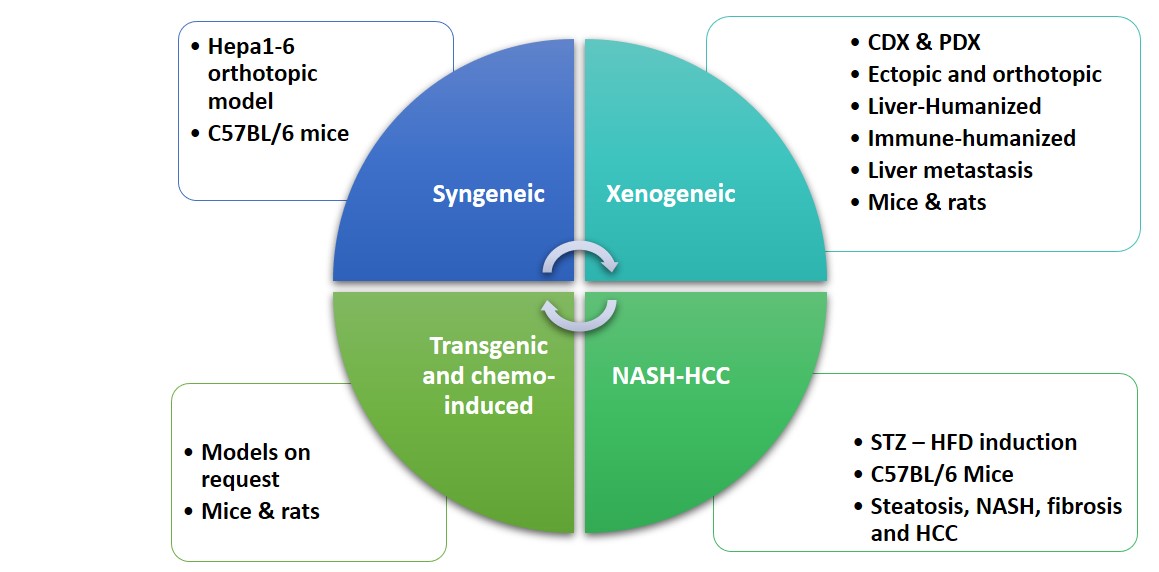
Mouse models of hepatocellular carcinoma (HCC) for immunotherapy research
Hepatocellular carcinoma (HCC) is a multistep process comprising chronic liver injury, inflammation, fibrosis/cirrhosis and cancer formation. Therefore, providing palliative and curative options remains a high medical need. Oncodesign Services develops preclinical HCC models to discover and identify novel therapeutic strategies that could circumvent the progression of liver cancers.
What is HCC?
Hepatocellular carcinoma (HCC) is the 4th leading cause of cancer-related death and accounts for over 80% of primary liver cancer worldwide. Most cases of liver cancer occur in the setting of chronic liver diseases. Risk factors include chronic Hepatitis B and C, alcohol addiction and metabolic diseases.
HCC models to support new therapies against liver cancer
In order to better evaluate new preventive and curative treatments of liver cancers, Oncodesign Services developed complementary and integrated strategies to mimic the liver cancer initiation and progression steps in mouse models. These models involve chemotoxic agents, diet-induced disorders and syngeneic or xenogeneic tumor implantation strategies.
-
NASH-HCC
Non-alcoholic steatohepatitis (NASH) has emerged as the most rapidly growing indication for liver transplantation in HCC patients. And with the recent success of immunotherapies in HCC, mouse models that better recapitulate the human disease and antitumor immune response are needed. NASH is a very useful model for the development of novel treatments, from therapies targeting the cause of the disease, i.e. dysregulated metabolism, to therapies targeting inflammation, fibrosis, and liver tumors at different stages.
-
Hepa1-6
This model is a highly suitable syngeneic HCC model for drug screening. It has proof of strong efficacy with compounds targeting TLR or STING pathways

Case study
Oncodesign Services developed a model induced by a low dose of streptozotocin and high fat diet regimen. In this model, mice develop metabolic syndrome NASH and fibrosis within 12 weeks and HCC within 16 weeks. Of interest, 100% of male mice develop HCC within 16 weeks, in accordance with studies showing that men had a 2-to 7-fold higher risk of developing HCC in human. Treatment of mice with lenvatinib alone.
